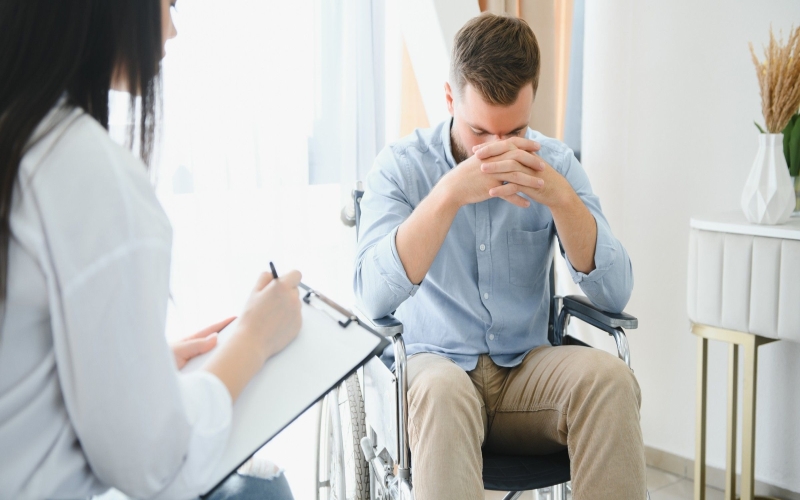Known for its agricultural roots and as a hub for oil production, Bakersfield, California, thrives with a diverse population, each contributing to its rich tapestry. This vibrant city embodies a unique blend of culture, industry, and community spirit against the backdrop of the San Joaquin Valley. Residents of Bakersfield are renowned for their resilience and strong sense of community, which is evident in the numerous local initiatives and events that bring people together. However, amidst the bustling life of the city, personal injuries remain a pressing concern.
From workplace accidents to traffic collisions and more, individuals in Bakersfield, like elsewhere, often encounter a range of injuries with varying consequences. When it comes to personal injury cases, there’s a common focus on physical harm and its subsequent compensation. However, psychological injuries are often overlooked or misunderstood in these situations. This article will shed light on the importance of recognizing and seeking compensation for psychological injuries in personal injury cases in Bakersfield with the help of an experienced personal injury law firm or attorney.
Understanding Psychological Injuries
Psychological injuries refer to mental or emotional harm that individuals may experience due to a traumatic event, accident, or negligence. These injuries are just as real and valid as physical injuries, often leaving long-lasting effects on a person’s overall well-being.
Psychological Injuries in Personal Injury Cases
The following are some of the most common kinds of psychological conditions that can result from a personal injury:
- Post-Traumatic Stress Disorder (PTSD): PTSD is a debilitating condition that can arise from experiencing or witnessing a traumatic event such as a car accident, slip and fall incident, or even medical malpractice. Symptoms may include nightmares, flashbacks, anxiety attacks, increased irritability, and social withdrawal.
- Anxiety Disorders: For some individuals involved in personal injury cases, anxiety disorders like generalized anxiety disorder (GAD), panic disorder, or specific phobias can result from the emotional trauma caused by the incident. Anxiety disorders may lead to constant worry, nervousness, restlessness, and difficulty performing everyday tasks.
- Depression: Suffering from an accident can also trigger depression. Individuals dealing with depression following a personal injury may experience persistent sadness, loss of interest in activities they once enjoyed, changes in appetite, fatigue, insomnia, feelings of worthlessness, and even thoughts of self-harm.
- Emotional Distress: Emotional distress refers to intense negative emotions that impact an individual’s ability to function normally day-to-day. It can manifest as feelings of fearfulness or helplessness due to the accident’s aftermath.
Seeking Compensation for Psychological Injuries
Personal injury cases incorporating psychological injuries require proper documentation and support for an effective claim:
- Documentation: Seek professional help from psychologists or psychiatrists who can diagnose and provide formal evaluations of your psychological injuries. This documentation will become essential evidence when filing your personal injury claim.
- Seeking Treatment: After seeking professional evaluations, it’s crucial to follow through with therapy or treatment plans recommended by healthcare providers. Consistent treatment can provide healing opportunities and further support your claim for compensation.
- Expert Witnesses: Depending on the complexity of the case, your attorney may hire expert witnesses to testify and validate your psychological injuries in court. These expert testimonies add credibility and depth to your claim.
- Building a Strong Case: Collaborate closely with a personal injury attorney experienced in handling psychological injury cases. They can guide you in gathering additional evidence, such as medical records, accident reports, witness statements, and any other relevant documentation to build a compelling case.
- Presenting Special Damages: In addition to compensatory damages sought for physical injuries, make sure special damages are included as part of your overall claim calculations. This includes expenses related to ongoing therapy or counseling, loss of earnings due to inability to work, and reduced quality of life caused by the psychological injuries sustained.
Common Challenges in Proving Psychological Injuries
Proving psychological injuries in personal injury cases can be challenging. Here are two common obstacles that individuals may face:
- Lack of Visible Symptoms: Unlike physical injuries, psychological injuries may not have visible or tangible signs. Insurance companies and defense attorneys often argue that the absence of visible symptoms undermines the legitimacy of the claim. This challenge emphasizes the importance of comprehensive documentation from mental health professionals and expert witnesses to validate the existence and impact of psychological injuries.
- Pre-existing Conditions: Defense attorneys may attempt to downplay or dismiss psychological injuries by arguing that they existed before the accident or incident occurred. However, it’s important to note that even if a pre-existing condition exists, an exacerbation or worsening of symptoms due to the trauma can still warrant compensation. Working closely with medical professionals and legal experts who specialize in personal injury cases can help establish a clear causation link between the accident and the worsening of existing psychological conditions.
Conclusion
Recognizing the significance of psychological injuries in personal injury cases is essential for complete healing and fair compensation for victims. By understanding common types of psychological injuries, seeking proper documentation and professional help, and building a strong case with legal support, individuals can improve their chances of receiving the compensation they deserve. Remember that mental health matters just as much as physical health in personal injury claims—it’s an integral part of achieving justice for those affected by traumatic incidents.

